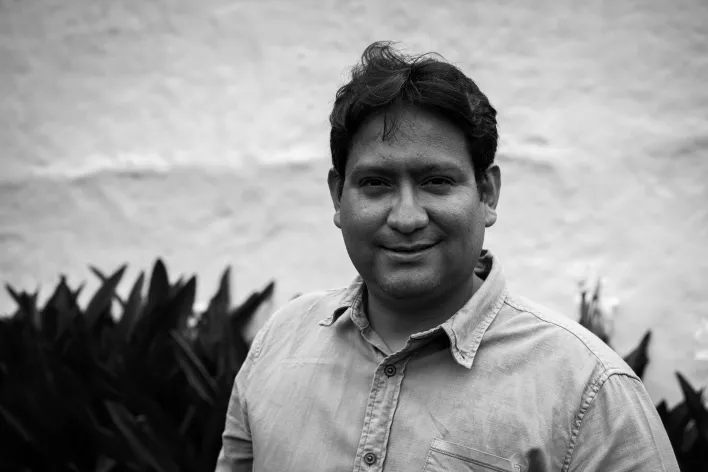
“Exile is a heavy burden. I left Nicaragua unplanned in the early hours of the morning at the southern border of the country, trying to protect myself from imminent risk. I was carrying a lot of uncertainty and fear, not knowing what was going to happen to me.
Leaving your country where you had a job, your home, your family, for a country where you have no network, is very complex. Although Costa Rica has opened its doors to us, in exile there are many needs and I don’t think the country was prepared to face the problem of the forced displacement of more than 80,000 Nicaraguans. Moreover, I feel that people here do not understand the full dimension of what is happening a few kilometres away.
In the midst of how difficult these two and a half years in exile have been, I consider that I am in a privileged situation, because here I have met other fellow defenders, people with whom I share the same aspiration for a free and democratic Nicaragua. Together, we realised that the only way forward was to organise ourselves and continue our struggle collectively. I have learned in practice that life in collective is better, that getting together with like-minded people and organising yourselves empowers your action and helps you to cope with the personal costs of exile.
Thanks to the fundamental support of several organisations, we were able to formally set ourselves up to be able to continue doing what we know how to do: resist, defend and promote human rights and accompany victims in Nicaragua and Costa Rica in their struggle to demand justice.
Never before has Nicaragua experienced so much injustice, pain and tragedy. Without a doubt, we are living in the most hostile context for the promotion and defence of human rights in the history of Nicaragua.
2021 is a very complex year, because the country has a new legislative framework that favours the persecution, prosecution and criminalisation of human rights defenders, journalists, activists and any voice that is uncomfortable to the government. That is why, despite the many challenges, exile has allowed us to speak for those who have no voice, because we are no longer in a highly repressive context but in a space that offers us greater security guarantees than in Nicaragua. In this sense, we have the responsibility to continue demanding justice, with our hearts, enthusiasm and commitment to Nicaragua and for the cause of freedom.
What remains for us in the face of such hostile and hate-filled contexts is to resist and fight to the best of our ability, using non-violent methods and self-care.”
Juan Carlos
